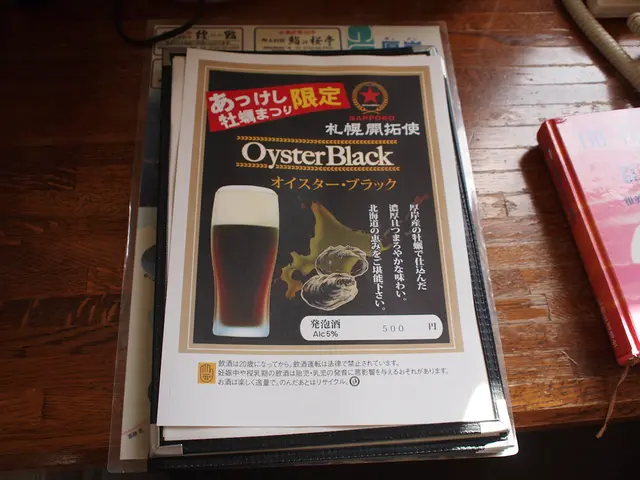Rapid and severe rosacea outbreak: Causes, signs, and treatmentsexploration
Rosacea Fulminans: A Rare and Severe Skin Condition
Rosacea Fulminans, also known as pyoderma faciale, is an uncommon and intense inflammatory skin disease. It manifest as sudden and severe flushing, swelling, and painful nodules and pimples primarily affecting the central facial region, including the chin, cheeks, and nose.
Unlike rosacea or regular acne, these symptoms are more pronounced and appear swiftly. The condition predominantly impacts females of childbearing age, but the exact cause remains a mystery.
Several factors might contribute to the onset of Rosacea Fulminans, including emotional stress, hormonal fluctuations, and certain medications. A 2021 literature review suggests dietary elements could potentially trigger or worsen rosacea symptoms. Dietary triggers may vary from person to person and include spicy foods, alcohol, and foods containing cinnamaldehyde, such as chocolate, tomatoes, and citrus fruits.
Rosacea Fulminans may also be more likely to occur in individuals who have had some form of rosacea before. Inflammatory bowel disease and pregnancy may also be linked, according to a 2020 review. However, it's crucial to note that these connections are not definitive.
Treatment for Rosacea Fulminans may involve oral isotretinoin, prescription acne medication, and corticosteroids, either oral or topical. A 2016 case study showed antibiotics combined with corticosteroids and lifestyle changes were effective in managing symptoms.
To manage symptoms, healthcare professionals may recommend reducing stress through mindfulness meditation, deep breathing exercises, regular exercise, and journaling. Making certain dietary changes, such as reducing alcohol, and using gentle skin care products may also be suggested.
It is advised to consult a dermatologist or healthcare professional if symptoms are severe, sudden, persistent, or worsening, and go beyond typical rosacea or acne. Prompt medical attention can help prevent complications, improve quality of life, and address any emotional distress related to the condition.
Rosacea Fulminans might be associated with flushing, swelling, inflammation, and painful nodules on the forehead, nose, cheeks, and chin. Ocular symptoms like dry, burning, or itching eyes and light sensitivity may also occur in some cases, although systemic symptoms such as fever and fatigue are rare.
In summary, Rosacea Fulminans is a severe form of rosacea that requires prompt attention from healthcare professionals. While specific dietary triggers for Rosacea Fulminans are not well-documented, general rosacea symptoms may be influenced by dietary factors. Individual management strategies may include personalized advice from healthcare providers, maintaining a balanced diet, and avoiding potential triggers.
Rosacea Fulminans, a rare and severe form of rosacea, is characterized by sudden and intense inflammatory skin conditions that predominantly affect the central facial region of women, particularly during childbearing age. The triggers for this condition could include emotional stress, hormonal fluctuations, certain medications, and possibly dietary elements such as spicy foods, alcohol, and foods containing cinnamaldehyde.
Treatment for Rosacea Fulminans might involve oral isotretinoin, prescription acne medication, and corticosteroids, and a combination of antibiotics, corticosteroids, and lifestyle changes has shown effectiveness in managing symptoms.
To manage symptoms, healthcare professionals may recommend stress reduction techniques, making certain dietary changes, and using gentle skin care products. It is vital to consult a dermatologist or healthcare professional immediately if symptoms occur, as prompt medical attention can help prevent complications, improve quality of life, and address any emotional distress related to the condition.
Besides the skin, ocular symptoms like dry, burning, or itching eyes and light sensitivity may also occur in some cases, although systemic symptoms like fever and fatigue are rare. It is crucial to note that while specific dietary triggers for Rosacea Fulminans are not definitive, individual management strategies may include personalized advice from healthcare providers, maintaining a balanced diet, and avoiding potential triggers.








